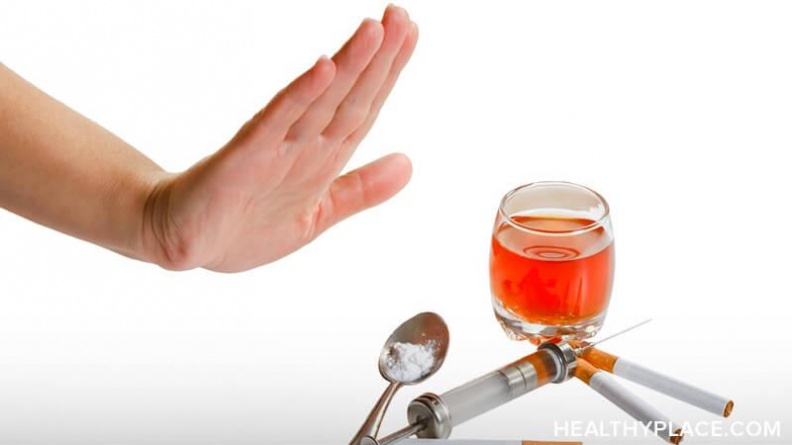Warning Signs of Addiction Relapse in a Loved One

It's important to know how to identify the warning signs of addiction relapse when you have a loved one who is in recovery from addiction. There are some telltale signs that a person in recovery is moving toward an addiction relapse, even before they actually use drugs or drink again. When you are able to identify those signs, you may be able to help your loved one avoid relapsing and get his or her feet firmly planted back in recovery.
While it’s often said that addiction relapse is a part of recovery, it doesn’t have to be when you know the warning signs of addiction relapse to look for in your loved one. The following are some of the common signs that an addiction relapse is looming:
7 Warning Signs of Addiction Relapse
1. No Longer Going to Meetings
Many people in recovery attend meetings of support groups like Alcoholics Anonymous or other fellowships. These types of programs offer people in recovery the support and information they need to progress in their recovery. Many people continue to attend support groups and programs long after getting clean and sober – some for the rest of their lives – in order to maintain their sobriety.
When a person who is in recovery and regularly attends meetings of support groups stops participating in those programs, it may be a sign that something is going on. This may be a warning sign of an addiction relapse because they don’t want to be reminded of what they stand to lose by using again, or they may have already used again and they don’t want anyone to find out.
2. Glamorizing or Romanticizing Using Memories
When people have their feet firmly planted in recovery, they begin to view memories of using differently. They typically advance from euphoric recall (only remembering the good feelings of using their drug of choice) to being able to see that their use was destructive and detrimental to themselves and others. They no longer think of drugs or alcohol as a positive thing. When a recovering addict begins to glamorize or romanticize drinking or using again, it is a warning sign of addiction relapse. It means the person is no longer considering the dangers of using again but instead is thinking about it in a positive light.
3. Old Behaviors Return
In addiction treatment, people learn to recognize behaviors they need to avoid to remain sober. They learn coping skills that help keep thoughts, feelings, and behaviors in check so they are able to deal with life without using drugs or alcohol. When someone who has been in recovery begins to act like they did when they were actively using, it could be a warning sign of addiction relapse. That isn’t to say that old behaviors won’t pop up from time to time even when a person is not considering using again, but if these behaviors persist without self-reflection and an attempt to change, relapse is likely.
4. Saying 'Just One Won’t Hurt'
People in recovery recognize that having just one drink or using drugs once isn’t safe for them. So, it’s very telling when someone in recovery adopts the attitude that using a small amount of a substance isn’t a big deal. It shows the person is beginning to rationalize and minimize the risks that are associated with using – which is a huge warning sign of addiction relapse.
5. Looking Up Old Friends
Just as people in recovery feel most comfortable being around other people in recovery, people who abuse substances like to be around other people who do the same. That’s one of the main reasons that addiction treatment teaches that people in recovery need to change their playgrounds and playmates to maintain sobriety. If your recovering loved one begins seeking out the people who he or she used to drink or do drugs with, that is a major sign that an addiction relapse is near.
6. Being Defensive and Denying the Problem
Being defensive about or denying that there is a problem is nearly universal for all addicts. They spend a lot of time and energy minimizing the impact of their addiction on their lives or flat out denying that there is a problem for concerned family and friends. Eventually, the defensiveness bleeds over into all aspects of an addict’s life, and he or she will get angry and deny even the most mundane things. When a person in recovery begins using the old strategy of defensiveness, it may be a sign of an addiction relapse.
7. Isolating from Supportive Friends and Family
Isolation is another characteristic that most, if not all, substance abusers exhibit. They withdraw from friends and family because they don’t want them to discover that they are using and it’s much easier to keep that secret if they keep them at a distance. In early sobriety, most addicts reach out to those very people for support and work to rebuild those relationships. When relapse is imminent, it’s typical for the person in recovery to begin shutting their supporters out once again.
What If the Warning Signs of Addiction Relapse Are Present?
If you recognize one or more of the signs in your loved one, it’s important to talk to him or her about what is going on. If he or she has a sponsor or other friends in recovery, you may want to enlist their help in discussing it. If relapse hasn’t happened, you may be able to help your loved one avoid it altogether. If he or she has already relapsed, further treatment may be needed to address underlying issues.
APA Reference
DeLoe, J.
(2018, March 15). Warning Signs of Addiction Relapse in a Loved One, HealthyPlace. Retrieved
on 2025, May 14 from https://www.healthyplace.com/blogs/debunkingaddiction/2018/03/identifying-a-possible-relapse-in-addiction-recovery
